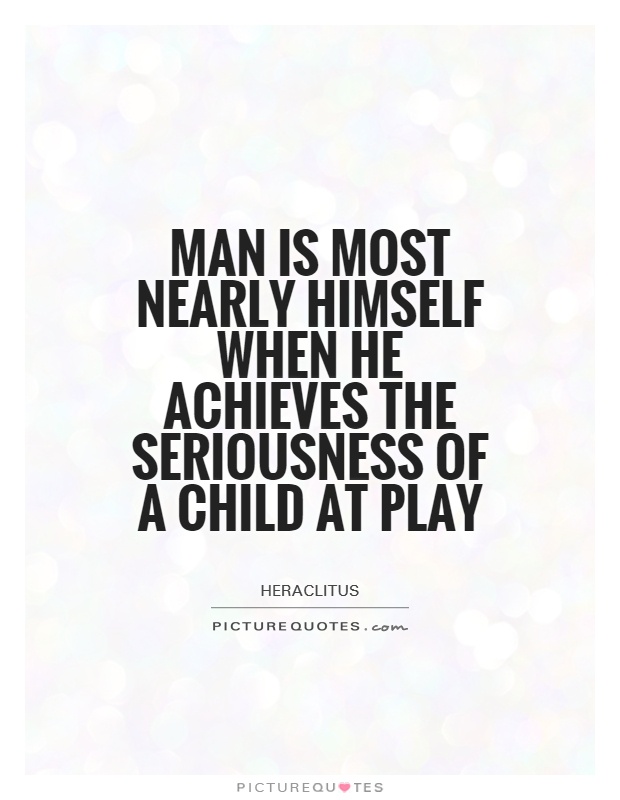
Man is most nearly himself when he achieves the seriousness of a child at play

Man is most nearly himself when he achieves the seriousness of a child at play
Heraclitus, the ancient Greek philosopher known for his doctrine of change and the concept of the unity of opposites, believed that man is most nearly himself when he achieves the seriousness of a child at play. This seemingly paradoxical statement holds a profound truth about human nature and the essence of being.In the context of Heraclitus' philosophy, the idea of achieving the seriousness of a child at play can be understood as embracing the spontaneity, creativity, and joy that children exhibit when they are fully immersed in their play. Children are not burdened by the constraints of societal norms, expectations, or self-imposed limitations. They are free to explore, experiment, and express themselves without fear of judgment or failure. In this state of pure being, they are fully present in the moment, fully engaged in the activity at hand, and fully connected to their true selves.
Heraclitus believed that as we grow older, we lose touch with this childlike state of being. We become weighed down by the responsibilities, pressures, and distractions of adulthood. We become preoccupied with the past or the future, with worries and anxieties, with the pursuit of material possessions or social status. We lose sight of our true selves, our inner essence, our connection to the eternal flux of the universe.
To achieve the seriousness of a child at play is to rediscover our authentic selves, to reconnect with the source of our being, to tap into the infinite wisdom and creativity that lies within us. It is to approach life with a sense of wonder, curiosity, and openness, to embrace the ever-changing nature of existence with acceptance and grace. It is to live in harmony with the natural order of the universe, to flow with the currents of change, to dance with the rhythm of life.












 Friendship Quotes
Friendship Quotes Love Quotes
Love Quotes Life Quotes
Life Quotes Funny Quotes
Funny Quotes Motivational Quotes
Motivational Quotes Inspirational Quotes
Inspirational Quotes